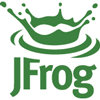Deploying and scaling applications with Kubernetes

What you'll learn, and how you can apply it
- Learn how to deploy your containerized applications to production with Kubernetes
- Understand that although Kubernetes has the reputation of being complex to setup and operate, it doesn't have to be the case
Who is this presentation for?
- You're a developer targeting Kubernetes clusters, ops supporting them, or architects and tech leads willing to understand cloud native principles.
Level
Prerequisites:
- Familiarity with container principles and at least one container engine (useful but not required)
Hardware and/or installation requirements:
- A laptop with a SSH client installed
Outline
Day 1
Kubernetes concepts
- What’s an orchestrator?
- From pods to containers
- The control plane
- Declarative versus imperative models
- Kubernetes networking overview
First contact with a Kubernetes cluster
- Getting familiar with kubectl
- Understanding deployments, replica sets, pods
- Listing and inspecting existing resources
- Running our first containers
Service discovery and load balancing
- Accessing pods through services
- Service types: ClusterIP, NodePort, LoadBalancer
- Headless services
- Using DNS for service discovery
Build, ship, and run a microservices app
- Creating deployments
- Exposing deployments internally and externally
- Scaling and load balancing
- Mitigating update impact with rolling deploys
Advanced deployment patterns
- Dynamically update load balancer backends with labels
- Traffic engineering with selectors and labels
- Adjusting rollout speed and resource usage
Using YAML to define resources
- Generating and exporting resource YAML
- Update the cluster state by editing YAML specs
- Use case: Creating a DaemonSet from a deployment
- Knowing the gotchas of YAML
- Resources generating more resources with templates
Operating a Kubernetes cluster
- Installation options
- Accessing application logs
- Centralizing logs
- Collecting metrics
- The Kubernetes dashboard
Day 2
Deploying multiple apps side-by-side
- Using namespaces
- Deploying multiple instances of the same app
Managing app complexity
- Review of app configuration mechanisms
- Managing app configuration with config maps
- Managing sensitive information with secrets
Packaging and deploying to multiple environments
- Kustomize
- Helm and Helm Charts
Security
- Authentication and authorization in Kubernetes
- Authentication with certificates and tokens
- Authorization with role-based access control
- Granting specific permissions to service accounts
- Isolating components with network policies
Productivity tricks
- Managing access to multiple clusters
- Securely accessing internal services
The “ingress” resource
- Using “ingress” for HTTP traffic
- Different ingress implementations
- Advanced traffic engineering
Deploying stateful applications
- Declaring and using persistent volumes
- Abstracting storage systems with persistent volume claims
- Scaling or replication with stateful sets
- Deploying resilient stateful applications
About your instructor

Jérôme Petazzoni is a DevOps advocate and international speaker. He was born and raised in France, where he worked on geographic information systems, voice over IP, video streaming, and encoding and started a cloud hosting company back when EC2 wasn’t an Amazon product yet. In California he built and scaled the dotCloud PaaS, which eventually gave birth to Docker. While at Docker, he represented the company at hundreds of conferences and events and trained thousands of engineers to use Docker, Swarm, and Kubernetes. He’s fluent in many languages (mostly programming ones), owns a dozen musical instruments, and can play the theme of Zelda on most of them.
Conference registration
Get the Platinum pass or the Training pass to add this course to your package.
Comments on this page are now closed.
Premier Diamond Sponsor
Gold Sponsors
Silver Sponsors
Innovators
Exhibitors
Contact us
confreg@oreilly.com
For conference registration information and customer service
partners@oreilly.com
For more information on community discounts and trade opportunities with O’Reilly conferences
velocity@oreilly.com
For information on exhibiting or sponsoring a conference
pr@oreilly.com
For media/analyst press inquires








Comments
Hi Ricardo,
Unfortunately our conference trainings are in-person only and we do not record them.You can search for similar trainings/topics on our Learning Platform, here:
https://learning.oreilly.com/home/
If you need further assistance, please contract our Customer Service department at cs@oreilly.com.
Thank you,
Sophia
Hello.
Will it be possible to participate online? Or see a recording?